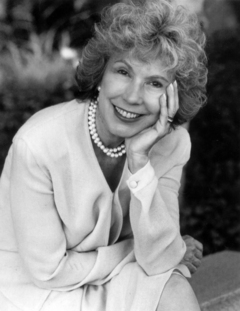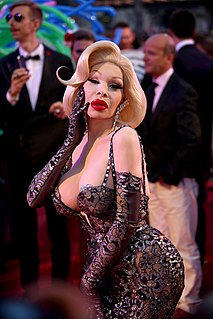A Quote by Blanche Wiesen Cook
And if you look at pictures of Eleanor between 1918 and 1921, she becomes anorexic. She really loses a tremendous amount of weight. That's when her teeth really go bad. It's a terrible, terrible time for her. And she has five children, ranging in age from three to 10. It's an emotionally terrible ordeal.
Related Quotes
I was bullied by my siblings and cousins, so make-believe was a way in which I could be in charge. When I was like 10 and my sister was about five, I convinced her that she was going to jail because she used a bad word. The doorbell happened to ring, and I told her it was the police. I made her pack her bags. She was crying, and then I said to her, "I forgive you, and I'm gonna tell the cop to go away." Then, of course, she loved me. It was terrible - she still remembers it. I had a sordid sense of humor.
How do you feel?” she asked, trying to fluff his pillow. “Other than terrible, I mean.” He moved his head slightly to the side. It seemed to be a sickly interpretation of a shrug. “Of course you’re feeling terrible,” she clarified, “but is there any change? More terrible? Less terrible?” He made no response. “The same amount of terrible?
For me, glamour was always an escape. When I was a kid, my mother was hospitalized, she was schizophrenic. When she was sick, she wouldn't do her hair or her makeup, and she just looked terrible. But when she got on medication and she was happy, she would go to the beauty parlor and wear makeup. So I really associate glamour with being happy. If you put on high heels and lipstick or get a new outfit, you feel great. It's a celebration of loving yourself, and the whole ritual of it is so great.
She was in a terrible marriage and she couldn't talk to anyone. He used to hit her, and in the beginning she told him that if it ever happened again, she would leave him. He swore that it wouldn't and she believed him. But it only got worse after that, like when his dinner was cold, or when she mentioned that she'd visited with one of the neighbors who was walking by with his dog. She just chatted with him, but that night, her husband threw her into a mirror.
Gabriel pulled her over his body to lie on the bed beside him. His kisses pressed her down into the oblivion of the mattress as her hands explored his chest, his shoulders, his face. "I want to lay my kill at your feet," he said, more growl than words, and held her tight by her hair as he marked her neck with his teeth. She writhed against him. She wanted to bite him, she wanted to rip the flesh from his back, but most terrible of all, she didn't want him to stop. Her back arched, her body shattered, she howled.
It's right around this time that her Grandmother Hall dies. And Eleanor Roosevelt is responsible for making all the funeral arrangements. And there are a couple of things that she really understands, as she contemplates her grandmother's life and makes the funeral arrangements. One, she's really talented, an organizational woman. She knows how to do things. She begins to compare her life to her grandmother's life. And it's very clear to her that being a devoted wife and a devoted mother is not enough.
The song "This Is Not Surreal," was inspired by a painter I love, Frida Kahlo. She really did suffer for her art. She speaks to me. She was brutally honest in her work. At that time in fine art, you really didn't see many female artists expressing that. She was such a strong female presence, and I really look up to her. She had a lot of physical pain.
And when she started becoming a “young lady,” and no one was allowed to look at her because she thought she was fat. And how she really wasn’t fat. And how she was actually very pretty. And how different her face looked when she realized boys thought she was pretty. And how different her face looked the first time she really liked a boy who was not on a poster on her wall. And how her face looked when she realized she was in love with that boy. I wondered how her face would look when she came out from behind those doors.
I think Eleanor Roosevelt always had a most incredible comfort writing letters. I mean, she was in the habit of writing letters. And that's where she allowed her fantasies to flourish. That's where she allowed her emotions to really evolve. And that's where she allowed herself to express herself really fully, and sometimes whimsically, very often romantically. And it really starts with her letters to her father, who is lifelong her primary love.
Perhaps I will die too, she told herself, and the thought did not seem so terrible to her. If she flung herself from the window, she could put an end to her suffering, and in the years to come the singers would write songs of her grief. Her body would lie on the stones below, broken and innocent, shaming all those who had betrayed her. Sansa went so far as to cross the bedchamber and throw open the shutters ... but then her courage left her, and she ran back to her bed, sobbing.
What's amazing to me is how many of the issues facing women in the ancient world still linger today. Take Odysseus' wife, Penelope, a brilliant, resourceful woman who ends up in a terrible situation: in her husband's absence, she is being held hostage in her own home by men who claim to be courting her. She tries to make them leave, but because she's a woman they refuse, blaming their bad behavior on her desirability.
































